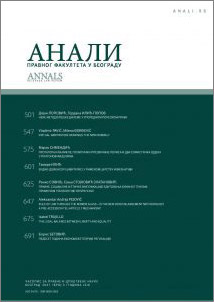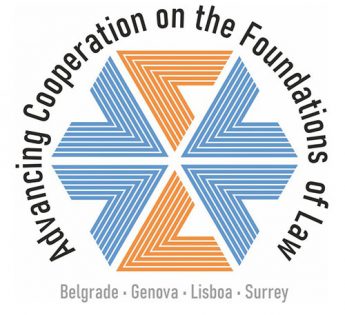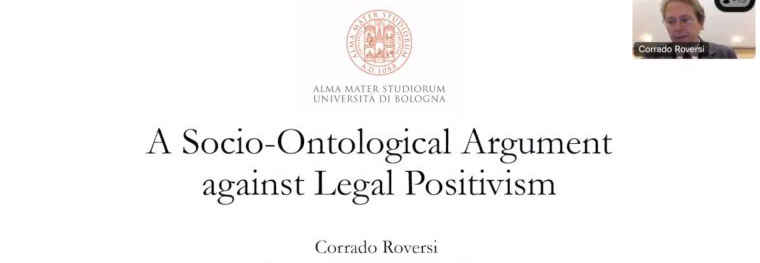
Prof. Roversi started with his main thesis as a critique of legal positivism by pointing out that designating a legal institution does not depend solely on the practices and declarative speech acts of officials. Therefore, even if P1 and P2 have the same constitutive rules and there is a corresponding rule-following practice, P1 and P2 can be different institutions, because elements such as the so-called background and systematic fallouts influence the ontology of a legal institution. Prof. Roversi then outlined the meaning of the concept of background, saying that it is some sort of “grammar” that exists before the behavior-according-to-the-rules, or a deeper network of desires and beliefs that emerge as a response to basic social needs. On the other hand, systematic fallouts encompass rules, goals and phenomena that are not visible within the deontic powers of an institution.
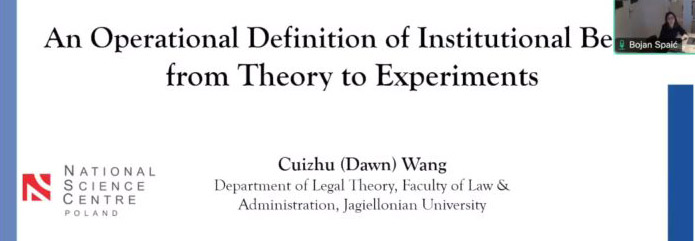
Belgrade Legal Theory Group organized the last event in the autumn semester of 2023 with Prof. Cuitzhu Wang (Jagiellonian University) on the topic of institutional belief. The topic of the lecture is connected to her current project “Ethics of Institutional Beliefs” supervised by prof. Adam Dyrda and sponsored by Polish National Science Centre.
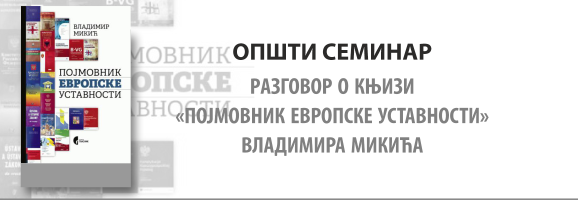
As part of the General Seminar at the Faculty of Law of the University of Belgrade, various aspects and the value of Vladimir Mikić’s book, entitled “Glossary of European Constitutionalism”, were discussed by: prof. Dr. Darko Simović (Criminal and Police University), prof. Dr. Vladimir Đurić (Institute for Comparative Law), Dr. Mijodrag Radojević (“Službeni glasnik“, Institute for Political Studies), as well as the author himself – Dr. Vladimir Mikić (Institute for Comparative Law).


